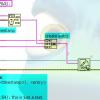Any difference between application 64 bits vs 32 bits?
-
Similar Content
-
- 2 replies
- 4,110 views
-
exec System Exec - not possible to recognize program or batch file
By Dawid,
- executable
- labview
- (and 1 more)
- 11 replies
- 16,993 views
-
- 1 reply
- 4,009 views
-
- 0 replies
- 2,134 views
-
- 21 replies
- 17,801 views
-




Recommended Posts
Join the conversation
You can post now and register later. If you have an account, sign in now to post with your account.